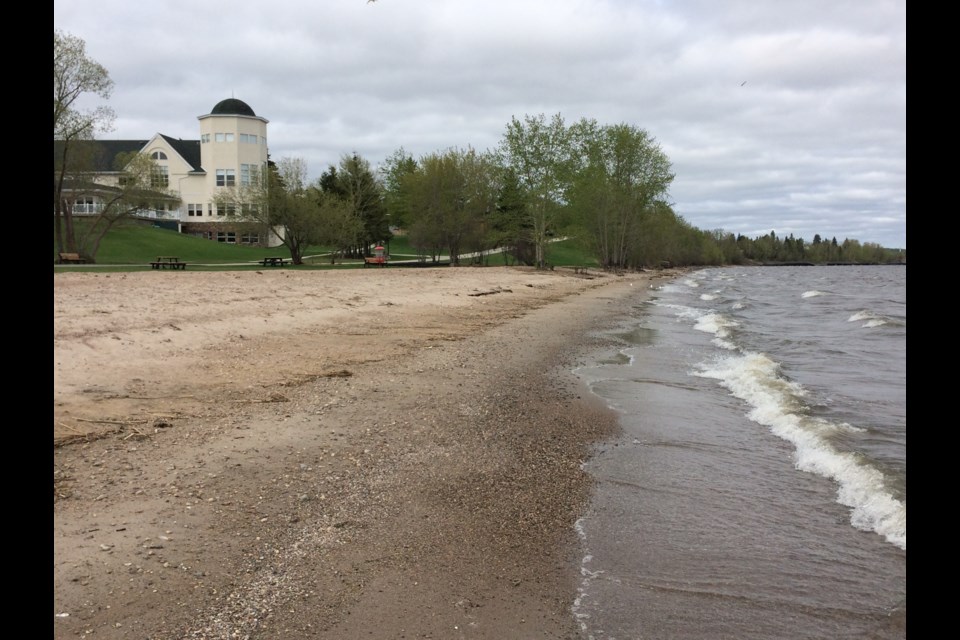LAC LA BICHE - In efforts to protect and improve water quality and keep the lake and watershed healthy, Lac La Biche County has pursued an updated version of their 2009 Watershed Management Plan (WMP). The updated plan began in late 2019 with the input of a steering committee, and was finalized and approved by Lac La Biche County councillors last week.
The authors of a finalized draft of the WMP include members Lac La Biche County staff, planners from Municipal Planning Services and a consultant from CCP Environmental. Their task over the last year and a half has been to gather available data and to develop the comprehensive report.
Growing concerns over the years have led the municipality and the regional environmental conservation group Healthy Waters Lac La Biche to pursue restoration and water quality improvement in the Lakeland area, the report said. The Healthy Waters group has hosted several public engagement sessions and virtual presentations over the last 18 months to get more information and awareness in to the community about lake-based issues within a region known for its abundance of lakes and water bodies.
An online survey conducted for the WMP’s public input and engagement sessions found that “79 per cent of respondents indicated they have noticed that water quality has worsened in the last five years.”
The issues raised during public input sessions were mainly related to recreational use, tourism and the overall health of the waters and environmentally sensitive areas such as the shoreline and riparian areas. This directly impacts the future use and enjoyment of the lakes for a growing number of residents and tourists.
The County’s new WMP cites that the largest areas of concern related to an increased severity of algae blooms, poor fish populations resulting from a decrease in water quality and nutrient loading of the Lake related to nutrients, as well as fertilizer and sediment that are being transported into water bodies as runoff.
As a result of these findings the top three goals outlined by the project are to reduce the frequency and intensity of algal blooms, improve the health of the watershed and the lake, and increase the recreational opportunites for the lakes. Meeting these goals, the County can improve the recreational value of the lake and by extension increase economic benefits in the region, say two of the plan’s authors Allison Rosland and Jane Dauphinee with Municipal Planning Services.
Implementation committee needed
However, the Watershed Management Plan has its limitations, as the report is just an outline that gives direction, they caution.
"The recommendations in the WMP are a bit more general; they're not identifying which specific area should have wetland restoration,” said senior plannner Dauphinee, explaining that action must be taken by the County or other governmental and private agencies in order to implement restoration projects throughout Lac La Biche’s riparian areas, shorelines and wetlands to actualize targets and goals set out in the WMP.
Rosland agreed.
“To implement the recommendation in the Water Management Plan would be to do an inventory and evaluation of your wetlands to determine which ones would make the most sense to focus [the County’s] efforts on in terms of restoration... there wasn't enough information available for us to be able to do that through our process. There was a data gap,” she adds.
The goal for the updated Lac La Biche WMP is to present not only the local municipal government, but also provincial governmental and non-governmental organizations with objectives, recommendations, actions for long-term science-based management practices in order to improve land and water use in Lac La Biche’s watershed area.
The report concludes that for outlined goals to be accomplished, the creation of an implementation committee is crucial to improve follow-through of the project and to conduct more testing and data collection of the current condition of the County’s water bodies and runoff.
A steering committee with a focus on lake water health has been operating in the region. The committee is made up of the Healthy Waters group, Indigenous communities, Lac La Biche County officials, industry stakeholders and the provincial government.
When addressing the subject of implementing restoration projects to combat issues listed in the report, Lac La Biche County councillor Colin Cote, who also sits on the Healthy Waters conservation board, said any plan to rectify current concerns will require long-term initiatives.
“It took many, many, many years to get to where we're at today. I suspect it will take many more to do the restoration work,” he said.


